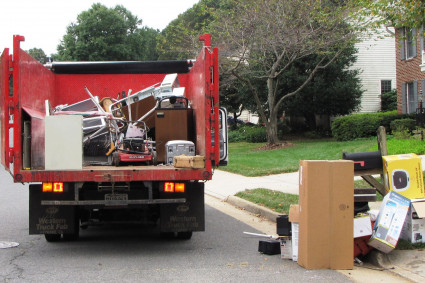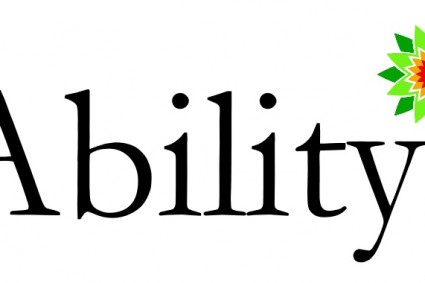What is considered "bad" in feng shui decoration and should be avoided?
In feng shui , certain elements or design choices are considered undesirable because they can disrupt the flow of energy (chi) and create negative or stagnant energy in a space.
Here are some elements that are generally considered "bad" and should be avoided in feng shui decorating: Clutter: Clutter
is one of the biggest culprits of stagnant energy. It blocks the flow of qi and can lead to feelings of stress and overwhelm. To maintain positive energy, keep your space uncluttered and organized.
Sharp corners and edges: It is believed that furniture or decorative items with sharp corners or edges create negative energy or Sha Chi. This is especially true if they are facing a sitting or sleeping position. To reduce their impact, you can soften the edges or reposition the furniture to avoid direct alignment.
Broken or damaged objects: Broken or damaged objects are considered unfavorable in feng shui because they can reflect a sense of neglect or stagnant energy. Repair or dispose of broken items instead of keeping them at home.
Mirrors facing the bed: Placing a mirror that directly reflects the bed is believed to disrupt restful sleep and can cause energy disturbances. If you have a mirror in your bedroom, make sure it doesn't face the bed directly or cover it with a fabric or screen when you sleep.
Cluttered or Blocked Entryways: A blocked or cluttered entryway can disrupt the flow of positive energy into your home. Make sure your entrance is well-maintained, barrier-free and welcoming to allow chi to enter and roam freely.
Poor lighting: Insufficient or harsh lighting can create a dark atmosphere and stagnant energy. Aim for a balanced lighting scheme that includes natural light, task light and ambient light to create a pleasant and energetic environment.
Negative or depressing images: Artwork, decor, or images that evoke negative emotions or depressing themes can affect the energy of a space. Choose artwork and decor that inspires you and increases positive energy and well-being.
Dead or dying plants: Dead or dying plants indicate decay and represent stagnant or negative energy. Keep healthy and vibrant plants in your space, as they symbolize growth, vitality and positive energy. Remove any dead or dried plants immediately.
Unbalanced colors: Colors in feng shui have special meanings and energetic properties. Unbalanced or excessive use of certain colors can disrupt the flow of energy. It is important to choose colors carefully and create a harmonious color scheme that supports the desired energy in every part of your home.
Remember, feng shui is a very personal practice and the interpretation of "bad" elements can vary depending on specific circumstances and individual preferences. The goal is to create a space that feels balanced, harmonious, and supports your well-being. Trust your instincts and make choices that align with your comfort and positive energy.
Special decorations for luck and positive energy in Feng Shui
Here are some decorative items that use anhia as good luck charms:
Lucky Bamboo: Lucky bamboo is a popular feng shui symbol of good luck, prosperity and strength. It is believed to bring harmony and positive energy to the house. Place it in a vase of water, and the number of stems can have specific meanings (for example, three for happiness, five for wealth).
Symbols of wealth: Decorations that symbolize wealth and abundance are considered lucky. These may include items such as a jade plant, a gold bar, a fortune ship, or a fortune bowl. Displaying these symbols in the wealth area of your home (southeast) can attract prosperity and abundance.
Crystals: Some crystals are believed to have positive energy and can be used as lucky charms. For example, citrine is associated with wealth and abundance, rose quartz brings love and harmony, and amethyst brings peace and spiritual growth. Place these crystals in areas of your home or where you want to increase certain energies.
Wind chimes: Wind chimes are considered to attract positive energy and ward off negative influences. Hang them near entrances or in areas with stagnant chi to encourage the flow of positive energy. Choose sweet-sounding ringtones that lift the mood.
Chinese Coins: Chinese coins tied together with red string or ribbon are a popular feng shui symbol for wealth and prosperity. Hang them near the entrance or place them in the wealth area to attract wealth and abundance.
Lucky symbols: Ornaments with lucky symbols from different cultures, such as horseshoes, four-leaf clovers or the evil eye, are believed to bring luck and protection. Choose symbols that resonate with you and place them in areas where you want to attract positive energy.
Red decor: Red is a lucky color in Feng Shui, which symbolizes good luck and happiness. Include red decorations such as red candles, pillows or artwork in your home to activate positive energy. However, use red sparingly and consider personal preferences and the overall color scheme of your space.
Tight fish or aquarium: Fish tanks or aquariums are considered lucky and bring prosperity. They symbolize the flow of abundance and vitality. Keep the tank clean and well maintained and choose fish that are compatible with the environment.
Balancing Feng Shui for a Harmonious Home
In this article, we offer you 7 practical tips to increase the flow of energy at home. By following these simple yet powerful principles, you can create a space that nurtures and supports your dreams.
So, let's begin this journey to transform your living space into a haven of positive energy.
7 tips to balance feng shui
1. Clear the clutter
Begin by relaxing your space so that positive energy (chi) flows freely. Get rid of items that no longer serve a purpose or have negative associations. A clutter-free environment promotes clarity of mind and a sense of calm.
2. Let in natural light
Embrace natural light as it brings vitality and positive energy into your home. Keep your windows unobstructed and use sheer curtains to maximize light flow and privacy.
3. Conscious placement of furniture
Arrange your furniture in a way that encourages easy movement and a sense of balance. Avoid placing furniture directly in the path of doors or blocking natural paths.
4. Coordinate with colors
Use calming and soothing colors that match your intention. Soft pastel colors are relaxing, while vibrant colors can energize certain areas of your home. Coordinate the colors to evoke the desired atmosphere in each room.
5. Embrace nature
Use elements of nature such as plants, flowers and natural materials such as wood and stone. These elements bring vibrancy and a sense of earth and increase the overall energy in your home.
6. Balance the five elements
Feng Shui revolves around the five elements - wood, fire, earth, metal and water. Strategically incorporate each element into different areas of your home to maintain harmony and balance.
7. Create a peaceful bedroom
Your bedroom should be a peaceful haven for rest and rejuvenation. Invest in a quality mattress, position your bed so that it has a clear view of the door, and keep electronics out of the bedroom for better sleep.
Do
Transform your home with the top 7 feng shui tips for positive energy. Clear the clutter, embrace nature, coordinate colors and balance the elements. Create a peaceful bedroom, use mirrors and crystals to clear energy blockages, and set positive intentions for yourself. Your harmonious living space promotes focus, creativity and happiness. Trust your intuition, stay open to adjustments, and let your home reflect who you are. Embrace this ancient art and experience a peaceful sanctuary that supports your well-being and well-being.







